 Bordering Turkey, Israel, Lebanon, Iraq, and Jordan, Syria has served as a linchpin of geopolitical stability in the Middle East for decades. In spite of its many years of single-party dictatorial rule, its track-record of Lebanese encroachment, and its continuous support of Israeli resistance organizations, Syria’s minority-led dictatorship has ensured that foreign political influence over the state (and, by extension, the region) remains largely static. By way of example, Syria has – for decades – given way to Iranian money and military supplies passing through the country, while also housing Russia’s sole Mediterranean naval base – a critical strategic position it has held since 1971.
Bordering Turkey, Israel, Lebanon, Iraq, and Jordan, Syria has served as a linchpin of geopolitical stability in the Middle East for decades. In spite of its many years of single-party dictatorial rule, its track-record of Lebanese encroachment, and its continuous support of Israeli resistance organizations, Syria’s minority-led dictatorship has ensured that foreign political influence over the state (and, by extension, the region) remains largely static. By way of example, Syria has – for decades – given way to Iranian money and military supplies passing through the country, while also housing Russia’s sole Mediterranean naval base – a critical strategic position it has held since 1971.
The Arab uprisings that have taken place since the end of 2010 have rocked this dynamic of static influence. Syria, since its initial uprisings in January of 2011, has grown unstable. Now at the cusp of civil war, Russian and Iranian interests are gravely threatened by the prospect of a new regime and new foreign influencers – namely supported by the United States, Europe, Saudi Arabia and the Muslim Brotherhood.
 In response, Russia has increased its military presence in the country and has gestured a growing alliance with the Bashar al-Assad regime. A critical question to ask at this time is: How does the Arab world perceive this foreign influence? If this can be answered, one can more accurately predict the likelihood for an extended proxy war in Syria.
In response, Russia has increased its military presence in the country and has gestured a growing alliance with the Bashar al-Assad regime. A critical question to ask at this time is: How does the Arab world perceive this foreign influence? If this can be answered, one can more accurately predict the likelihood for an extended proxy war in Syria.
To comprehensively answer this question, one would likely have to gather a wide variety of data, reflecting all of the geopolitical realities of the region. Instead (and as a starting point) I have pinpointed and analyzed Arabic discussion of Russians on Twitter in hopes of gaining a greater appreciation of 1) how Arabs are discussing Russians, 2) the volume of Arabic social media about Russians that is focused upon Syrian intervention, and 3) the likelihood for Arab resistance to growing Russian influence.

For this experiment, I utilized DiscoverText – the commercial text analytics solution from Texifter - to capture nearly three months of Tweets containing the word “روسية” (“Russian” in Arabic). I then created a topic model (using natural language processing) to classify the content of those tweets according to their relevance to the Syrian uprisings as well as the presence of Islamist rhetoric. The following classification charts demonstrate how these trends have shifted between February and April on Twitter.
First week of February:
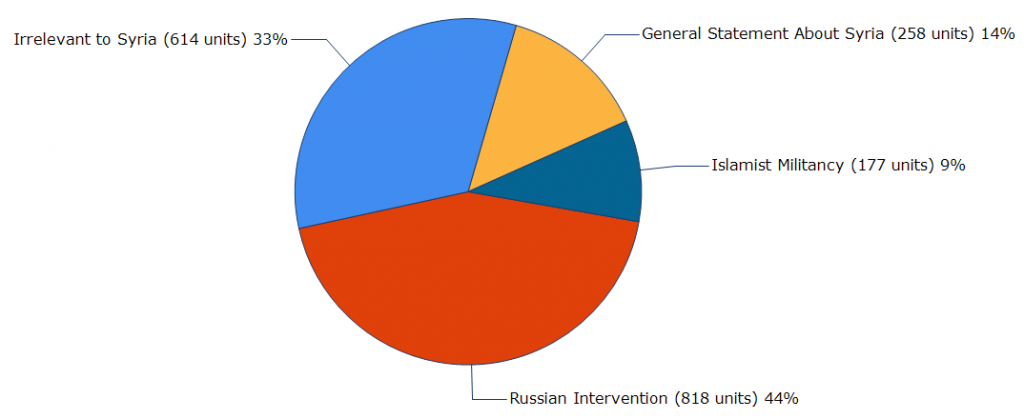
First week of March:

First week of April:

Analysis:
While Arabic social media witnessed a spike in Russian news and pop culture content in March, it should be noted that the proportion of “روسية” Tweets regarding Russian political and military action in Syria nearly returned to its February proportion (of 44%) in April at 41%. (Tangentially, one might also suggest that this fluctuation in “irrelevant” Russian content is indicative of a bourgeoning cultural exchange between Russia and the Arab world.) In any case, Arabs on social media are plainly recognizing that Russians are a bourgeoning intervening force. One will also notice a slight drop in general statements about Syria (such as neutral statements regarding Syria’s historical relationship with Russia). This is not surprising considering that regional tensions have sharply risen since February and Russia’s political influence and military presence in the country have steadily increased.
Perhaps most intriguing is the drop in Islamist rhetoric displayed since February. Granted, religious-based calls for external fundraising and rebel rearmament can still be found, but what explains this decrease? This question gives rise to a host of theories. First, it is distinctly possible that as the Syrian regime grows desperate for control, the Islamist support for the “Free Syrian Army” and the “Syrian National Council” has grown quiet, driving its social media conversation deeper underground. Second, one might also suggest that this decrease in Islamist rhetoric is – in part – due to the recent influx of money and weaponry provided by Western nations as well as Saudi Arabia since March. In other words, the decrease in rebel desperation for weaponry has – perhaps – softened those Islamist cries for aid on social media.
Ultimately, the relationship between the decreasing Islamist rhetoric about Russians in the region and the increasing Russian intervention in Syria merits further study, as it will shed light on the probability of conflict between those two influences. Text Analytics can serve a critical purpose here, as sentiment analyses and further topic modeling will be essential for predicting the behavior of states and non-state actors in a time of great geopolitical change in Syria and the region.
—
Research for this project was contributed by Lina Shaikhouni. She can be reached at linashaikhouni@gmail.com.





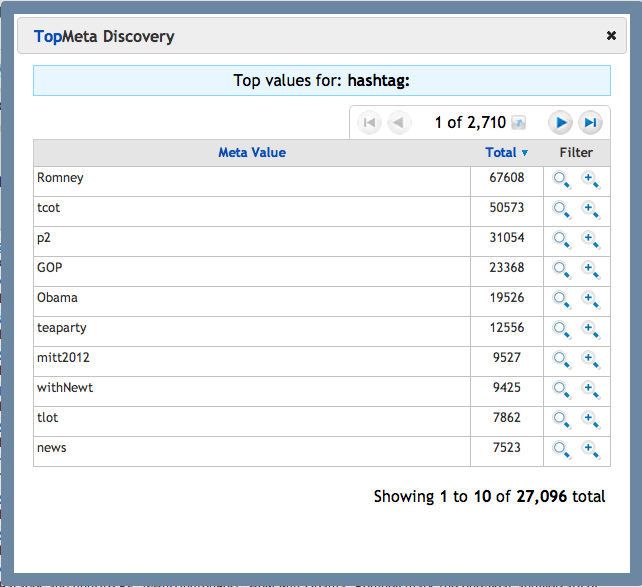

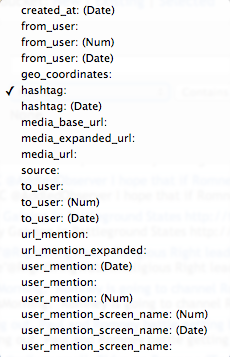
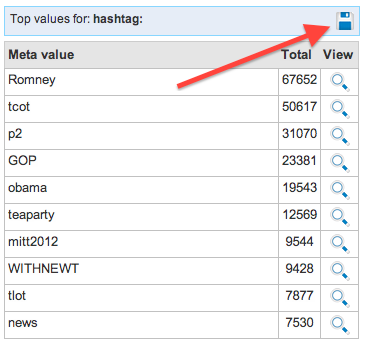

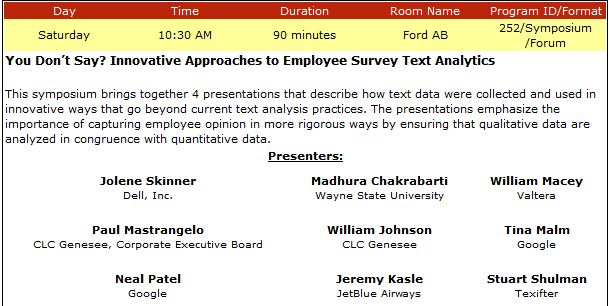

 In response,
In response, 






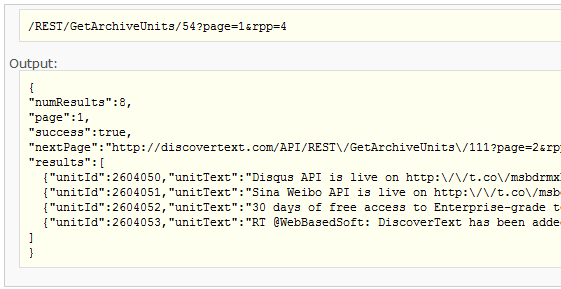

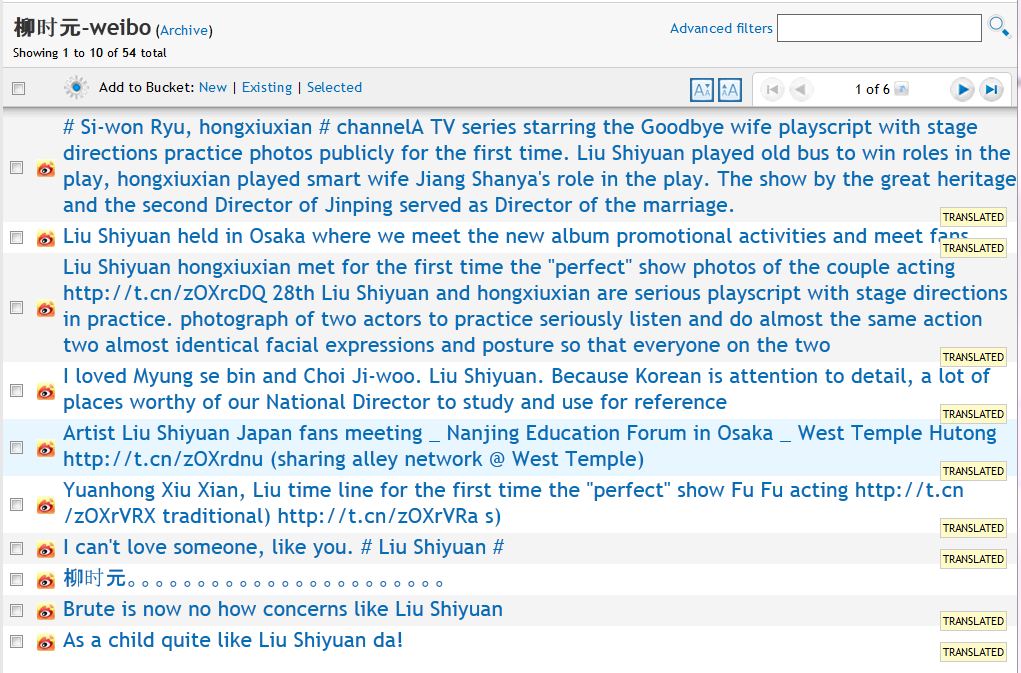


![28AE1E99-79CB-454F-B928-3F824F8C39B1[7]](images/28ae1e99-79cb-454f-b928-3f824f8c39b17.png)
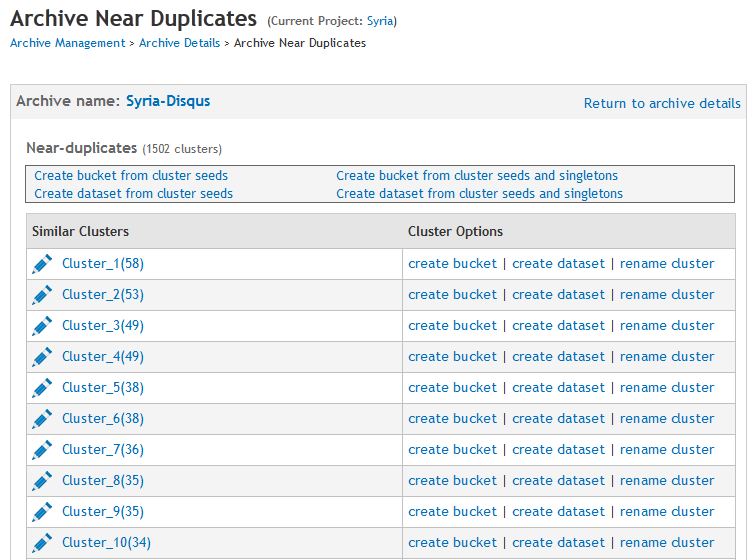


 With over 300 million users, Weibo is the largest micro-blogging website in
With over 300 million users, Weibo is the largest micro-blogging website in 

What do people “Disqus” about Syria?
I have a “Disqus” feed going on Syria. The “TopMeta” shows the distribution of online forum sources. Click on the image to see it full-size.
Much of this content is from Al Jazeera blogs, but there also many comments from CNN & Fox News sites.
Below is a visualization of the most frequently non-stop words based on an archive of 107,197 non-duplicate comments.
This visualization is produced by the "CloudExplorer" feature in DiscoverText. Click on it to see the full size version.